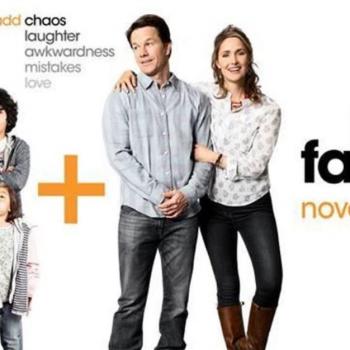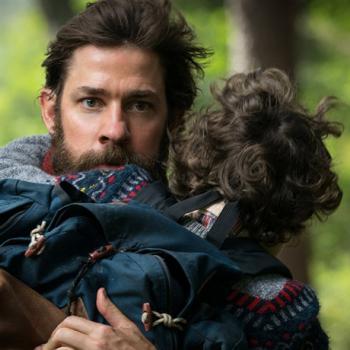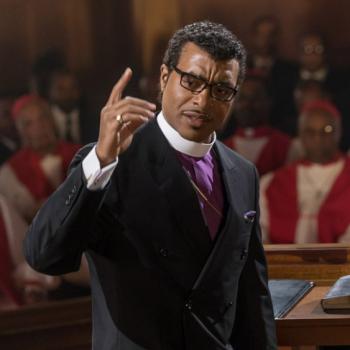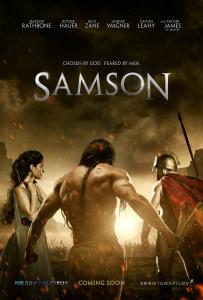
My wife and I, both about to turn 42, went to see a film about a married couple in their early 40’s. Did we see a movie about ourselves? Or just a movie about people our same age? We don’t live in New York City, and we have children, but at core, we’re not much different than Josh (Ben Stiller) and Cornelia (Naomi Watts). We’ve advanced past our youth, made certain choices, and are now pretty well set in patterns that have either become routine or “the rhythm of our lives” (that second choice of words sounds so much better, no?).
While We’re Young begins with Josh and Cornelia visiting their friends who have had a baby. We learn that Cornelia has had fertility issues and miscarriages, but there is a shocking lack of anger or sadness about such struggles. The question of having children seems to be a litmus test throughout the film for whether characters are ready to grow up (an absurd and shallow test, to be sure). Josh is a documentary film director who has been working on a political doc for 10 years and doesn’t seem to be able to finish it. Their relationship and lives are a little stale, as in one conversation Josh asks his wife, “What’s the opposite of ‘The world is your oyster’”? Then they meet Jamie (Adam Driver) and Darby (Amanda Seyfried), two 20-somethings who both flatter and intrigue Josh and eventually Cornelia, and the four start spending time together, highlighted by Josh and Jamie working on a documentary together.
This is a movie with a lot on its mind. The nature of art, the meaning of success, the illusive nature of contentment, the blessings and curses of technology, the perception of generational divides, and, of course, the fear of aging, which is really the fear of death. It doesn’t really have any good guys or bad guys, just people who are complex and trying to make something out of their lives, or at least trying to figure out what they should be doing.
Adam Driver is perfect as Jamie, the hipster who either celebrates or ironically displays the ‘80’s culture of Josh’s (and my) childhood. Driver plays both sides of Jamie deftly; the authentic free spirit, as well as the narcissistic chameleon. I’m torn on the casting of Stiller. While he is a natural at disenchanted characters who need affirmation, you just know that in the third act there will be a scene where he publicly loses his cool and completely embarrasses himself ala your standard rom-com. This is disappointing, because most of this movie is fairly free of cliches until the last 15 minutes.
Many reviewers have seen Stiller’s character as being a stand-in for director Noah Baumbach. Baumbach, 44 at the time of filming, is in a relationship in real life with the much younger Greta Gerwig, who starred in his last two films, Greenberg (also with Stiller) and the great Frances Ha. We even get a tip of the hat to this avatar idea when Stiller tells a continuing education film class that “Documentary is about other people, fiction films are about yourself.” Whether or not Baumbach’s films are autobiographical, this one is certainly more hopeful than Baumbach’s earlier films, particularly The Squid and the Whale and Margot at the Wedding. Maybe middle age has made Baumbach less cynical. Or maybe being around a younger woman has energized him. Or maybe the studio made him write a happier ending to sell more tickets. Or maybe he’s just writing characters who may or may not reflect his own life and feelings. Who knows? At the end of the day, we really only have the film itself to interpret, and it tells us that we need to ask ourselves what we’re pursuing and if we’re ok in our own skin.
It’s no great insight to say that our culture is obsessed with youth. We don’t know how to age gracefully, hoping to stay cool and attractive as long as possible. But, does aging have to be a fearful process? Part of the problem with Josh and Cornelia seems to be a general lack of purpose. Without purpose, any age can be accompanied by deep discontent and fear of the future. But the problem also seems to be a limited view of life. So many people only see three real stages in life: youth, old, and about to die. But, if we could think of ourselves as eternal beings, those who live on past the 80 or 90 years of this life, would we be able to enjoy each new stage and let the earlier stages go? As Jackson Browne once sang, “All good things gotta come to an end, the thrills have to fade, before they come ‘round again; the bills will be paid, and the pleasure will mend, all good things gotta come to an end.”













